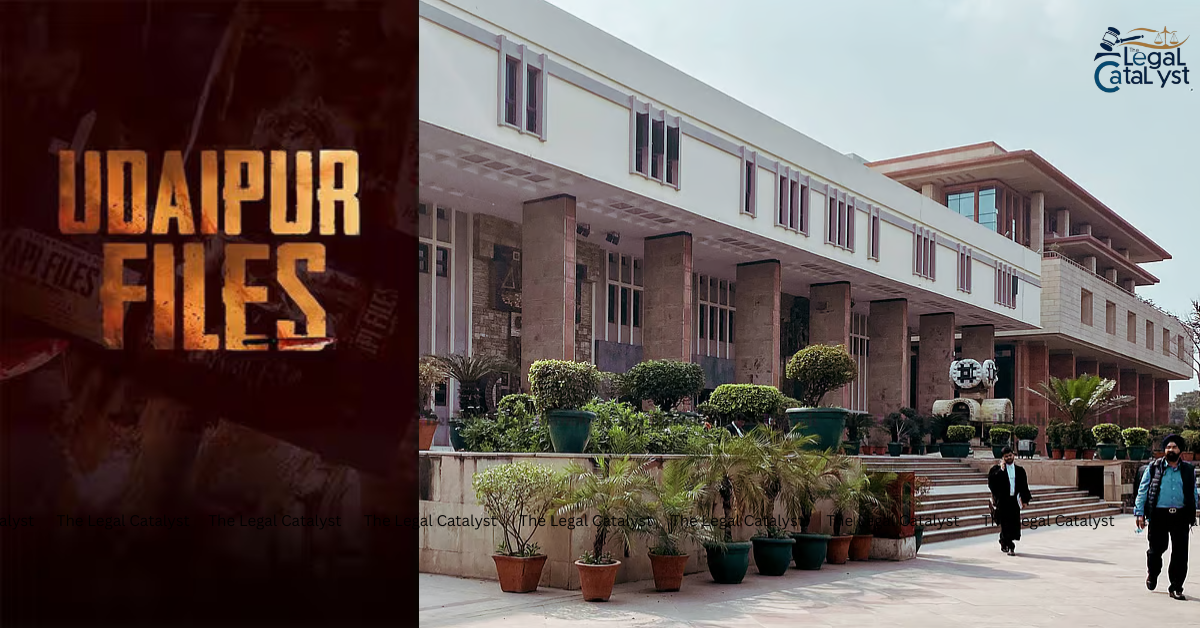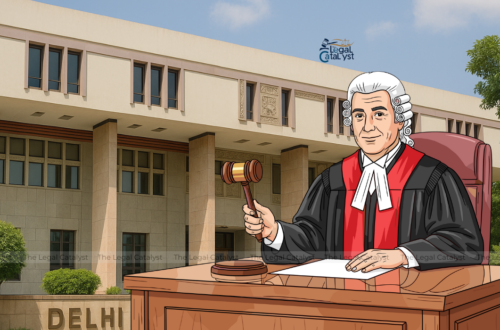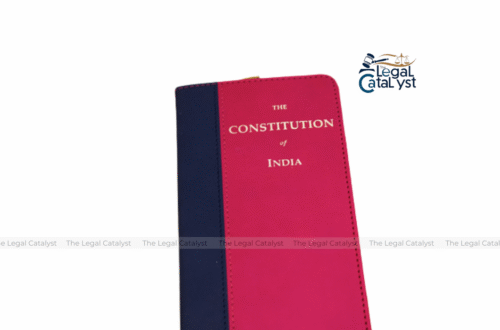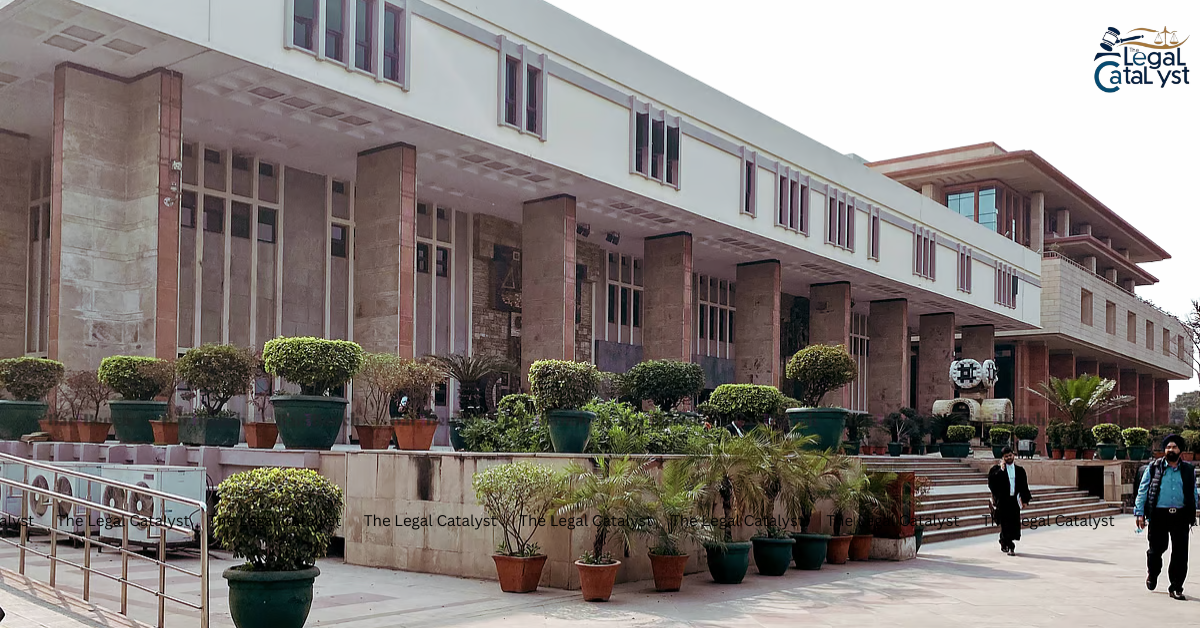New Delhi, July 11, 2025 — The Delhi High Court stayed the release of the film Udaipur Files on Thursday. The release is delayed until the Central Government examines its content under the Cinematograph Act, 1952. The movie is based on the 2022 murder of tailor Kanhaiya Lal Teli in Udaipur. It was scheduled for release on Friday, July 11.
The stay was granted on a batch of petitions. One petition was filed by Jamiat Ulema-e-Hind President Maulana Arshad Madani. He alleged that the film Udaipur Files vilifies the Muslim community and promotes communal disharmony.
A Division Bench comprising Chief Justice Devendra Kumar Upadhyaya and Justice Anish Dayal gave specific directions. They directed the petitioners to file a revision petition before the Central Government. This should be done under Section 6 of the Cinematograph Act. This section allows the government to exercise revisional powers. These powers are used against certification decisions made by the Central Board of Film Certification (CBFC).
“Since we are relegating the petitioner to invoke the remedy of revision under Section 6 of the Act, we provide that … there shall be stay on release of film,” the Court ordered.
Follow us on Instagram – X – LinkedIn
The Court clarified that it could intervene under Article 226 of the Constitution. However, it stated that the appropriate course would be to first approach the government. It directed that if the petitioners file a revision within two days, the Centre must decide the matter. This decision must be made within one week after hearing both parties. The interim relief plea is also to be considered during this period.
During the hearing, Senior Advocate Kapil Sibal, representing Madani, described Udaipur Files as “horrific” and full of hate speech.
“What I have seen yesterday is horrific,” Sibal told the Court after viewing the film, adding, “This is not art. This is cinematic vandalism.”
The CBFC was represented by Additional Solicitor General (ASG) Chetan Sharma. Sharma stated that the CBFC had already directed the removal of certain objectionable parts of the film. It had also issued a show-cause notice to the filmmaker regarding the film’s trailer. Sharma submitted that 55 excisions were made. These included references to Deoband, Nupur Sharma, and even “IB.” This shows the CBFC’s due diligence.
The Court raised concerns. It questioned whether penal action had been taken for the unauthorized publication of the trailer. The trailer had allegedly been exhibited without certification.
“Exhibition of uncertified portions of a film invites penal action,” the Court noted, while questioning CBFC’s role and jurisdiction over digital content.
Sharma argued that CBFC had limited powers regarding online trailers. He cited a Bombay High Court ruling. However, the Court emphasized that any show-cause notice issued must be logically concluded.
Counsel for the film’s producer, Advocate Shreeyash U Lalit, maintained that the movie was crime-specific, not community-specific. It aimed to portray external influences. This included alleged involvement from Pakistan. He argued that the film had fictional elements and was inspired by the NIA chargesheet in Teli’s murder case.
The Court responded by stating that a film cannot be defended solely on the basis of an ongoing investigation. It added that “a chargesheet is always subject to trial.”
The Bench noted that the scale of distribution with 1,800 theatres booked is substantial. Over 1 lakh tickets were reportedly sold. Still, this does not affect its decision. The number of theatres and tickets sold is significant, but it remains irrelevant to the decision. The release will still be stayed.
Sibal, in closing arguments, contended that the film promotes a visceral hate narrative, unfairly demonizing the Muslim community.
“This movie is visceral hate, nothing short of that. Several scenes have no bearing on the basic plot and are included only to demonize Muslims,” he said.
The petitioners have sought a complete ban on the film’s release and distribution. They also want removal of its trailer from platforms such as YouTube, Facebook, and X (formerly Twitter).
The Court rejected the Centre’s request to defer the hearing. The grounds were that a similar matter was pending before the Supreme Court. However, there was no restraining order or listing confirmed in that case.
The matter is now pending further action. This is dependent on the Central Government’s decision on the film Udaipur Files content under Section 6.
Also Read
Centre to Launch National Arbitration Portal to Track Government Disputes
Delhi High Court Declines to Entertain Plea for Broader Public Access to CIC Hearings






